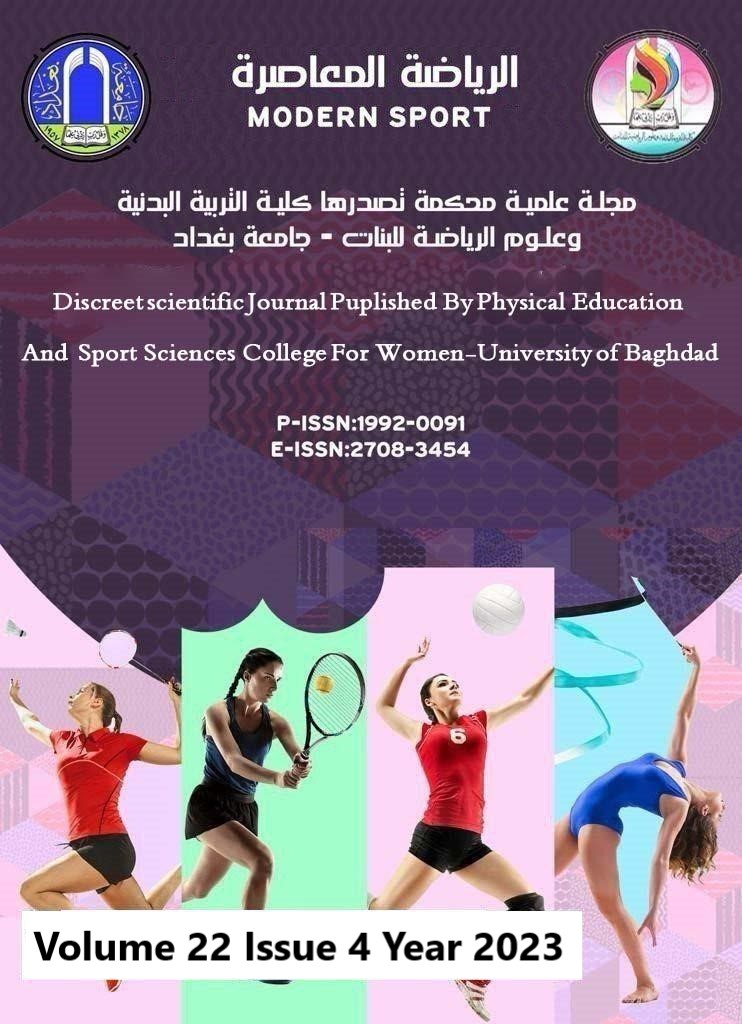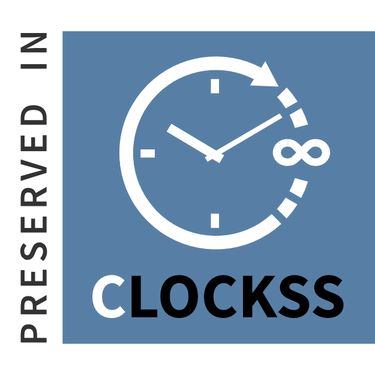Emotional self-control among ground tennis and table tennis players for the disables
DOI:
https://doi.org/10.54702/ms.v22i4.1174Keywords:
Emotional self-control, Table tennis for the disabled, Tennis for the disabledAbstract
Emotional self-control is an important factor in terms of the player’s ability to raise the level of performance and control his behavior, and it is considered a risk factor when it is low such that the player deviates from his normal behavior. Low self-control is nothing but difficulty in controlling the self and issuing abnormal behaviors such as extreme anger and thus the influence negatively in the level of performance. As for the research problem, the researchers noted that they suffer from psychological problems as a result of neglecting and lack of proper attention to them. The player sees himself as marginalized and no one cares about his disability and his psychological and social problems that require special care from everyone. The goal of the research is to prepare measures of emotional self-control. For tennis and table tennis players for the disabled, identifying the degree of emotional self-control for tennis and table tennis players for the disabled. As for the hypothesis, there are no statistically significant differences in the degree of emotional self-control between the arithmetic mean and the hypothetical mean among tennis players. As for the fields, the human field for disabled tennis and table tennis players, the time field for the period from 3/23/2023 to 5/3/2023, the spatial field is in the tennis courts in the International Al-sh’ab Stadium and the halls of the Sub-Union and table tennis for people with disabilities. The researchers followed the descriptive approach by relying on the research sample, which represented 100% of the research community, which was represented by table tennis and tennis players in sports clubs and committees for males and females and for the sports season (2021-2022). They numbered (62) male and female players, and the researchers took (12) male and female players for the purpose of conducting the exploratory experiment, and the application sample included (50) male and female players. The conclusions were that the tennis and table tennis players for the disabled had an average score according to their responses on the emotional self-control scale, and this achieves one of the sustainable development goals of the United Nations in Iraq which is (Quality Education). The recommendations highlight the role of disabled players as a topic that deserves further research in the field of sports psychology and other variables.
References
- Abu Nada Khaled Muhammad. (2004). Creative thinking and its relationship to both cause attribution and the level of ambition. Master’s thesis, College of Education, Islamic University, Gaza. P: 38.
Ahmed Suleiman Odeh & Fathi Hassan Makkawi. (1987). Fundamentals of Scientific Research in Education and Human Sciences. Amman, Al-Manar Library for Publishing and Distribution. P:151.
Ahmed Ali Saleh et al. (2010). Management with Intelligence, a Strategic and Social Excellence Approach for Organizations. First Edition, Dar Wael for Publishing and Distribution, Amman, Jordan. P: 43.
Ikhlas Abdel Hamid & Sahira Razzaq Kazem. (2022). Psychological prosperity among female university students who practice and do not practice sports. Modern Sport, 21(1). P:24 https://doi.org/10.54702/msj.2022.21.1.0024
Sahab Ismaeel, & Njlaa Abbas. (2022). Analytical study of psychological adjustment for physical education colleges and sports sciences in Baghdad when used by electronic education. Modern Sport, 21(1). P: 58 https://doi.org/10.54702/msj.2022.21.1.0057
Sumaya Riadh, & Widad Kadhum. (2022). The effect of exercises using the spring ball tool in developing the accuracy of the front and back stroke for Wheelchair Tennis players. Modern Sport, 21(1). P:102 https://doi.org/10.54702/msj.2022.21.1.0098
Saleh Arshad Al-Aqili & Samer Muhammad Al-Shayeb. (1988). Statistical analysis using the program SPSS, 1st edition. Jordan, Amman, Dar Al-Shorouk for Publishing and Distribution. P: 282
Saba Abdul-kareem Zghair, & Sahira Razzaq Kadhum. (2022). Moral integrity among students of the faculties of physical education sports sciences and fine arts. Modern Sport, 21(4). P:73. https://doi.org/10.54702/ms.2022.21.4.0073
Raghda Fouad Muhammad. (2022). Mutual social trust and its relationship to the sense of self among people with physical disabilities for those who practice and do not practice sports activities. Modern Sport, 21(3). P:11 https://doi.org/10.54702/msj.2022.21.3.0001
Abdul Fattah Al Khawaja. (2013). Psychological Counseling Methods. Amman, Jordan, Dar Al-Bedaya Publishers and Distributors. P: 85.
Al-Muqayd, Arif. (2009). Classroom management problems facing primary school teachers in UNRWA schools in Gaza and ways to overcome them. Master’s thesis, Islamic University, Gaza. P: 59.
Mustafa Mahmoud Al-Imam et al. (2012). Evaluation and Measurement. 4th edition Baghdad, Ibn Rushd College of Education. P:66.
Abdullah Alalaf, M. T., & Alhoory, U. S. (2022). The Effect of a Psycho-social Program on Decreasing Loneliness of Volleyball Players from Sitting Position. Modern Sport, 21(1). P:8. https://doi.org/10.54702/msj.2022.21.1.0008
Meriam Abdul-ameer, & Sahira Razzaq. (2021). Intellectual emptiness and its relationship to mental distraction among some students of the College of Physical Education and Sports Sciences. Modern Sport, 20(3). P:14. https://doi.org/10.54702/msj.2021.20.3.0013
Muhammad Khalil Abbas et al. (2009). An introduction to research methods in education and psychology. 2nd edition, Dar Al-Masirah Publishing, Amman, Jordan. P:52.
Huda Edan, Ghofran Basheer, & Meriam Abdul-Jabbar. (2020). Self-confidence and its relationship to the performance of the dynamic formation of the ring tool for students of the third stage. Modern Sport, 19(1). P:5. https://doi.org/10.54702/msj.2020.19.1.0001
Wajih Mahjoub, & Hussein, Ahmed. (2002). Scientific Research. Babylon University Press, Ministry of Higher Education, Iraq. P: 163.
Waheeb Majeed Al-Kubaisi. (2010). Psychological measurement between theory and application. Lebanon, United International. P: 33.
Downloads
Published
Issue
Section
License
Copyright (c) 2023 Modern Sport

This work is licensed under a Creative Commons Attribution 4.0 International License.















